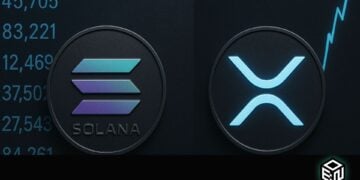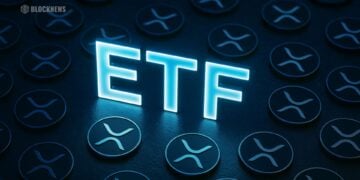The Securities Commission of The Bahamas has made a draft of the Digital Assets and Registered Exchanges (DARE) Bill 2023 public.
- The 2020 DARE Act has been amended by the SCB’s issuance of the Digital Assets and Registered Exchanges (DARE) Bill 2023.
- The new regulation expands what is considered regulated activity to include managing and advising on digital assets, offering derivative services, operating nodes, and staking.
SCB’s New Draft
The Bahamas Securities Commission (SCB) has made a draft version of the Digital Assets and Registered Exchanges (DARE) Bill 2023 available to the public, which suggests a significant amendment to the DARE Act of 2020. The proposed legislation adds digital asset advising and management, derivative services, node services, and staking to the list of regulated business activities. It also establishes new standards for the systems and controls of exchanges. The measure also addresses non-fungible tokens, liquidity requirements, mining, and conflict resolution. It also controls custodial wallets and initial token sales, forbids algorithmic stablecoins, and bans privacy tokens.
Following the bankruptcy of FTX, a cryptocurrency exchange with a base in The Bahamas, in November 2022 amid allegations of fraud and corruption, the bill is a response to criticism from around the world. This raised awareness of the Bahamian regulatory framework and prompted changes to the nation’s securities watchdog.
DARE 2023’s Comprehensive Scope
The proposed legislation broadens the definition of regulated activities to cover advising and managing digital assets, providing derivative services, running nodes, and staking. Trading was formerly solely handled on authorized exchanges. The SCB will now also demand registration from those who advise on and manage digital assets, and derivative services like futures and options will be governed. Regulations will also apply to node services and staking, which include confirming blockchain transactions and receiving rewards in return.
Custodial wallets, which hold digital assets on behalf of customers, are likewise governed under the bill. Regarding capital sufficiency, operational controls, and security standards, this is a new area of regulation. The measure also establishes guidelines for first token offers, requiring issuers to thoroughly explain their company’s operations and complete disclosure of all relevant facts and hazards related to the offering.
New Disclosure Regime for Digital Asset Staking
An unusual aspect of the measure is a disclosure regime for staking digital assets. The terms of the client agreement, the specifics of the staking protocol, the assets being staked, the potential incentives or penalties for users, and the process for choosing staking participants are all included in this disclosure. The goal of the disclosure regime is to improve openness and lower risk in staking, which has grown in popularity as a mechanism for users to receive rewards on their digital assets.
Algorithmic Stablecoins and Privacy Tokens Banned
Algorithmic stablecoins and privacy tokens are prohibited under DARE 2023. Instead of being backed by a fiat currency or physical good, algorithmic stablecoins are digital assets that keep their value stable through algorithms. Contrarily, privacy tokens conceal the history of digital asset transactions using sophisticated cryptography. The law claims that the use of algorithmic stablecoins and privacy tokens can endanger both financial stability and consumer protection.
Non-Fungible Tokens, Liquidity Requirements, Mining, and Conflict Resolution
The bill also discusses mining, liquidity restrictions, non-fungible tokens (NFTs), and conflict resolution. NFTs are digital assets that depict one-of-a-kind objects like artwork, collectibles, and digital real estate. According to the legislation, NFT issuers must fully disclose all relevant information, including risks related to the offering and a thorough description of the issuer’s operations.
The measure establishes liquidity standards for exchanges, mandating that companies have a specific amount of assets available for trading. The action also specifies processes for resolving disputes and governs mining, which is the process of confirming transactions on a blockchain network in exchange for rewards.
Consultation Period and Enactment
Stakeholders will have until May 31, 2023, to comment on the proposed law during the consultation process for the bill. The SCB anticipates that the law will go into effect by the end of the 2023 second quarter.














